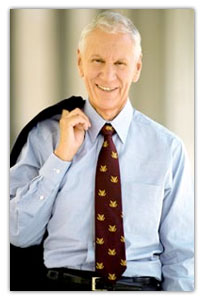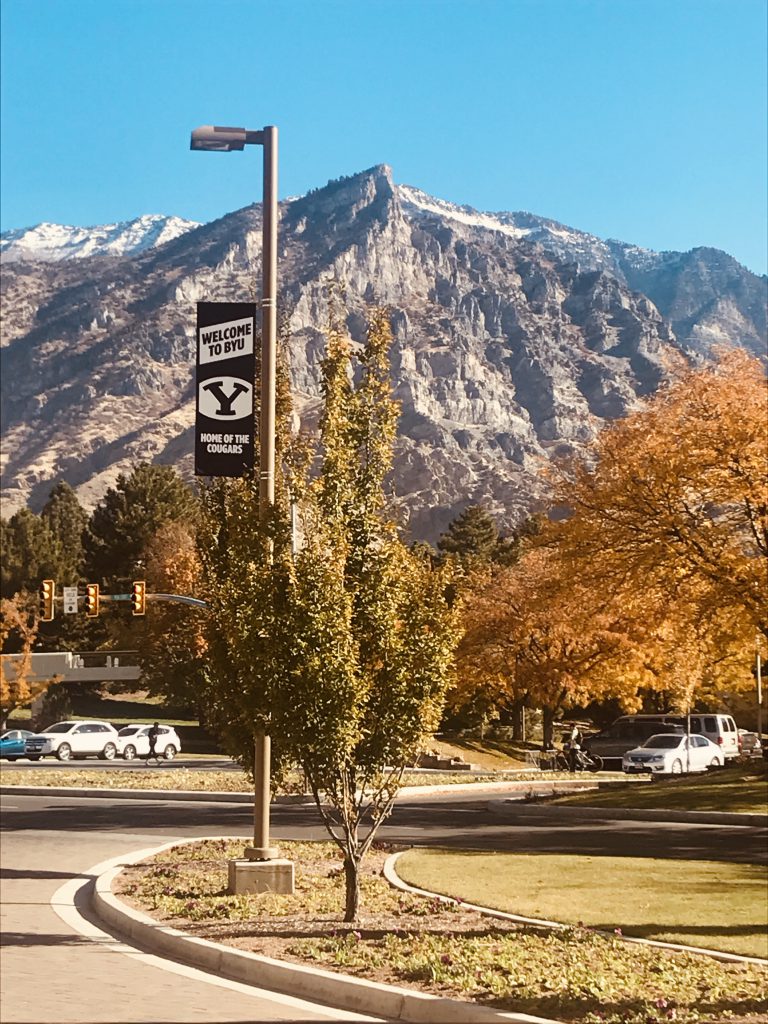(My notes for a talk this evening at a Ludics Seminar at Harvard’s Mahindra Center on “The Role of Play in Human Evolution and Public Life: Work, or Play?”)
It is very common to distinguish politics or civic life from both work and play. (The words “politics” and “civic” have overlapping meanings, coming respectively from Greek and Latin, and I’ll use them interchangeably here.)
Aristotle provides an early example of the distinction between work and politics. He begins with the premise that “the citizen’s function” is “deliberating and judging (whether on all issues or only a few).” In other words, to act as a citizen means to talk, to listen, and to vote. It is discursive and cognitive. Citizens, understood as deliberators and judges, must be free from doing the necessary tasks of life, which are done by slaves (who work for individuals) and by mechanics and laborers (who work for the community). Aristotle advises: “The best form of city will not make the mechanic a citizen.” Note that the mechanic or laborer is not defined by poverty, for some are very rich, but by participation in the marketplace. Working distorts people’s values and goals and makes them bad at deliberation about the public good, perhaps because they focus on their economic interests. Governance is best reserved for a class that has enough wealth not to work.
I cannot think of anyone today who would openly disenfranchise workers for the reasons that Aristotle cites. However, the same distinction between work and politics is evident in several political traditions that make the opposite value-judgment from Aristotle’s. Like him, they presume that politics is about talking, listening, and deciding, and it’s done outside of work. But unlike Aristotle, they think that only those who work are worthy of politics, because they alone have the appropriate values or because their productive labor gives them the right to rule.
One version holds that people of industry and thrift are worthy of governing a republic. This idea is familiar from the English Revolution, the Dutch Republic, and Colonial New England. It associates the bourgeois work ethic with republican virtues.
A different version is agrarian populism, which sees the stalwart farmer as the most legitimate citizen. Like Cincinnatus, a republican farmer puts down his plow to govern and fight, but he hastens back to his fields when his civic duty is done. Jeffersonian American populism and Russian Narodnism are examples.
A third version is Marxist. The workers form a class, distinguished from the bourgeoisie, who merely claim a “work ethic” while they exploit the actual laborers. The working class should rule. Marx offers the resonant ideal of unifying work with Aristotelian politics, removing the alienation between ruling and making. But my impression is that Marxist reforms–from mild democratic socialism all the way to Maoism–have hardly ever realized that ideal. Instead, they have tended to distinguish–just as Aristotle did–between work and governance, but they make the workers into the governors. You work in the factory by day, and after the whistle blows, you attend a workers’ council meeting to make decisions. In fact, the problem with socialism, according to Oscar Wilde, is that it occupies too many evenings.
Two additional strands of reform have developed since the Industrial Revolution. I endorse both, but they are not my main subject here. One aims to democratize the workplace by creating co-ops and other alternative enterprises that are governed on the basis of one-worker, one-vote. The other puts democratic pressure on the workforce by forming an independent association of workers than can negotiate and strike–a union. Both reforms narrow the gap between work and politics, but not in the way that I will describe.
My friend Harry Boyte advocates a different ideal, which he calls Public Work. He has uncovered many precedents for it from around the world.
Public Work begins with a conceptual shift. We should no longer distinguish deliberating and judging from designing and making. They are all aspects of building our public world, our res publica or common-wealth.
For example, the democracy of ancient Athens was not just a discussion among gentlemen; it was also a set of physical spaces–like the Pnyx, where the discussions occurred–that people had built with their hands. The workers and the deliberators were jointly responsible, and their tasks were not sharply distinguishable. Talking in a forum is one kind of work; building the forum requires deliberation and judgment as well as skill and sweat.
Closer to our time and place: Harvard Square is the joint creation of the Cambridge City Council (which deliberates and judges about things like zoning rules), many firms and corporations (including the Harvard Corporation), workers who do everything from drawing blueprints to pouring cement, and the people who put their bodies onto the streets for a wide variety of reasons, including the homeless who sleep there. All of them create the common space.
Public Work disputes the standard definition of “civic engagement” as activities that people undertake voluntarily without being paid, such as voting, protest, or discussing issues. That definition trivializes civic life by reducing it to after-work voluntarism and marginalizes the many ways that people contribute to public spaces and institutions. Public Work also disputes the distinctions among public, private, and nonprofit sectors. A private enterprise might turn out to contribute more and better to a public good than a government does.
We do need a definition of the word “public” in “Public Work,” or else the phrase threatens to encompass all work and ceases to guide judgments and reforms. Perhaps to be public, work must involve intentional efforts to create public goods (at least as byproducts) and must be responsive to other citizens. If you run a bank in Harvard Square, you strive to make a profit; but if you also ensure that the facade of your building is attractive and harmonious with the other structures in the Square and you take advice and feedback from other people, including the homeless who sleep on your doorsteps, you have made your work more public. If everyone behaves like that, we have a democratic commonwealth.
This ideal suggests a whole range of reforms, from regulations that compel consultation to changes in the training and education of professionals. We might also reconceive some policy proposals, such as the Green New Deal, as opportunities for many people in many sectors to do Public Work. Reducing greenhouse emissions and mitigating the damage of climate change are public goods. People can contribute to these goods by paying taxes, supporting regulations, participating in local planning processes, volunteering after work, reorienting their businesses, conducting research, refraining from certain purchases, and educating their own children. All of this–together–can be seen as Public Work and promoted (but not fully realized) by federal policy.
So far, I have discussed work and tried to soften the distinction between work and politics or civic engagement. But we are not only workers and artisans; we also like to play. We are homo ludens as well as homo faber.
In Making Democracy Fun, Josh Lerner argues that civic and political leaders should learn from people who know how to make good games. For instance, in an enjoyable game, you glean the information you need as you go along. You needn’t study for months before you can begin to play. But we tend to assume that you can’t be a good voter until you have already studied many details about government and policy. Couldn’t we integrate learning into political participation?
Likewise, fun games give most of the players something satisfying to do all the way through. If only a few get to play, or if the game continues long after the result is obvious, people drop off. Couldn’t we redesign civic processes so that everyone has interesting roles all the way through?
Our colleague Eric Gordon [who will be present] has contributed excellent examples of such redesigns and important theoretical insights, such as his idea of “meaningful inefficiency“:
Well designed human systems are indeed comprised of efficient transactions, but they should also include encounter, wonder, relation and caring, experiences largely absent from the smart city paradigm. Borrowing from game design, where players are provided with goals, and confronted with unnecessary obstacles that make their striving for that goal meaningful, I suggest that these meaningful inefficiencies are necessary for making a city smart. When there is room for play in the systems with which we interact, there is opportunity for people to form relationships, build trust, care for one another, and make shared meaning — all of which comprise the foundation for resilient communities.
To summarize the argument so far: Most people reflexively distinguish citizenship and politics from work and from play. When you’re on the job or having fun, you are not involved in politics or civic engagement. If you get paid for public service, that is work; but if you help others for free, that is volunteering, which is an example of civic engagement. If your after-work activity is a game, it is not service. The standard view is a three-way distinction: work, play, politics.
Harry Boyte and others reject one of these distinctions, the one between work and politics. For Boyte, politics is Public Work. In passing, he sometimes complains that we have reduced it to mere play. “It is as if citizens have been consigned to the playground of civil society after they have been chased off everywhere else.”
Josh Lerner, Eric Gordon, and others reject the other distinction: between play and politics. In passing, Lerner suggests that we have made politics too much like work (in a bad sense). He cites Erik Erikson for the idea that play involves self-imposed rules. So does democratic politics, because the people are supposed to make the rules that govern them. In contrast, work is defined by externally imposed rules (p. 61).
Must these two critical positions conflict? It may depend on how we define play or games and work. These particular definitions are notoriously difficult. In the great text of his late phase, The Philosophical Investigations, Wittgenstein uses “game” as his primary example of a word that functions very well for communication even though it cannot be defined with necessary and sufficient conditions. We can learn what the word “game” means. We can use it correctly or incorrectly. Mistakes in our use of the word can be demonstrated. Yet the dictionary’s definition will not teach us how to use it, basically because it is a family-resemblance term. It encompasses many types of behavior that cluster together without having one common denominator.
The same is likely true of the word “work.” In fact, Wittgenstein gives examples of games that are work. Already on the first page of the main text of the Investigations, he asks us to imagine
[A] language that is meant to serve for communication between a builder A and an assistant B. A is building with building stones: there are blocks, pillars, slabs and beams. B has to pass the stones, and that in the order in which A needs them. For this purpose they use a language consisting of the words “block”, “pillar”, “slab”, “beam”. A calls them out;—B brings the stone which he has learnt to bring at such-and-such a call.——Conceive this as a complete primitive language. (PI #2, Anscombe translation)
This example is also a game, and it is also work. Wittgenstein presents the example as he begins to analogize all language to games, and all purposive human behavior to language.
To explore the similarities further: Both work and game-play usually involve interactions among multiple parties, although at the limit, one can work alone or play solitaire. Both require planning and execution. Both can result in success or failure. Both can either satisfy or bore and alienate. (Similar design features may increase the odds of satisfaction). Both imply agency: purposive action within a larger structure. Both depend on rules, but the rules must permit innovation and judgment. Both usually develop as traditional structures that newcomers can learn, but we can invent new forms of work and new games. We can find what Mihály Csíkszentmihályi calls “flow” in either work or play.
The overlap is large and important, but I would like to conclude with a difference that inclines me to favor Public Work.
Characteristically, work produces things of market value (even if the producer does not choose to sell or trade them). This is not characteristic of play. Borderline forms of play, such as professional athletics, hunting, and such hobbies as knitting may produce tradable goods, but in each case, we wonder whether “play” is really the right word.
Producing things with market value generates political power or leverage over systems. Once producers organize themselves, they can refuse to provide goods or deploy their revenue to influence politics. By these means, workers have been able to win a share of political power. They haven’t been granted power because they deserve it as a matter of fairness; they have demanded and seized it.
The classic case is an organized strike, but workers have many other ways to influence states. I believe that democracy arose basically because elites in certain countries (beginning with Holland and England) offered segments of their productive classes political voice in return for a willingness to pay taxes, purchase government bonds, and enlist in the military. These countries then decisively defeated monarchies because they could field much larger and better armies and navies. The nascent democracies had a Darwinian advantage over monarchies; they spread because their workers and elites coorperated.
This means that work tends to promote democracy. I don’t see the same pattern for play. Josh Lerner offers excellent advice to benign political leaders (including the organizers of insurgent social movements) whose goal is to engage the people. Such leaders should learn from game-design and create opportunities for play. But I don’t see an equally viable strategy for using play to combat obstinate power, whether in the state or in popular movements (which tend to turn into oligarchies).
It is worth thinking about some interesting cases in which play does seem to confer power. Lerner cites the Theater of the Oppressed of Augusto Boal: poor people improvise public theatrical performances. Their activities can be classified as “play,” and they contribute to radical social reforms. But I suspect that they only succeed when poor people also use their work for leverage.
Another interesting example is Participatory Budgeting, which invites the public to develop and choose proposals that get public funding. It is somewhat game-like and it turns out better to the extent that it uses good practices of game design. It originated with an elite: the leaders of the newly elected Workers party in Porto Alegre, Brazil. But it proved so popular that succeeding governments retained it. That suggests that the popularity of play generated some power. On the other hand, I once wrote a chapter for the World Bank that conceptualized Participatory Budgeting as Public Work. I think it was the play aspect that made PB enjoyable, but the work aspect that made it powerful.
I mention all of this because automation and artificial intelligence may worsen the scarcity of work, yet human needs may continue to be met by an increasingly productive economy, giving more people more time for play. If play conferred power and tended to strengthen democracy, this would be good news. But if democracy depends on work–on elites needing the support of workers–then the news is bad. We may be heading for authoritarian oligarchies that rely on machines and very high-skilled labor to generate wealth and that offer play to keep most people compliant. To respond to that threat, we probably ought to save work rather than expand play.

 For more than 25 years, Everyday Democracy has worked with communities across the country to foster a healthy and vibrant democracy – characterized by strong relationships across divides, leadership development, including the voices of all people, and understanding and addressing structural racism. The Aicher Award seeks to elevate community leaders who embody these values.
For more than 25 years, Everyday Democracy has worked with communities across the country to foster a healthy and vibrant democracy – characterized by strong relationships across divides, leadership development, including the voices of all people, and understanding and addressing structural racism. The Aicher Award seeks to elevate community leaders who embody these values.







 Wednesday, November 13th
Wednesday, November 13th –
–  –
–  –
–  Global Partnership for the Prevention of Armed Conflict (GPPAC) –
Global Partnership for the Prevention of Armed Conflict (GPPAC) –  Zehr Institute for Restorative Justice –
Zehr Institute for Restorative Justice –  All around the country, we are facing a crisis in civic life – people are becoming more socially isolated, disconnected from a sense of common purpose, and cynical about their own ability to affect change. Enter Civic Saturday: a gathering that brings communities together to cultivate a sense of shared civic purpose and moral clarity. At Civic Saturday, people get to know one another, share a meaningful communal experience, and leave inspired to become more powerful, responsible citizens.
All around the country, we are facing a crisis in civic life – people are becoming more socially isolated, disconnected from a sense of common purpose, and cynical about their own ability to affect change. Enter Civic Saturday: a gathering that brings communities together to cultivate a sense of shared civic purpose and moral clarity. At Civic Saturday, people get to know one another, share a meaningful communal experience, and leave inspired to become more powerful, responsible citizens.